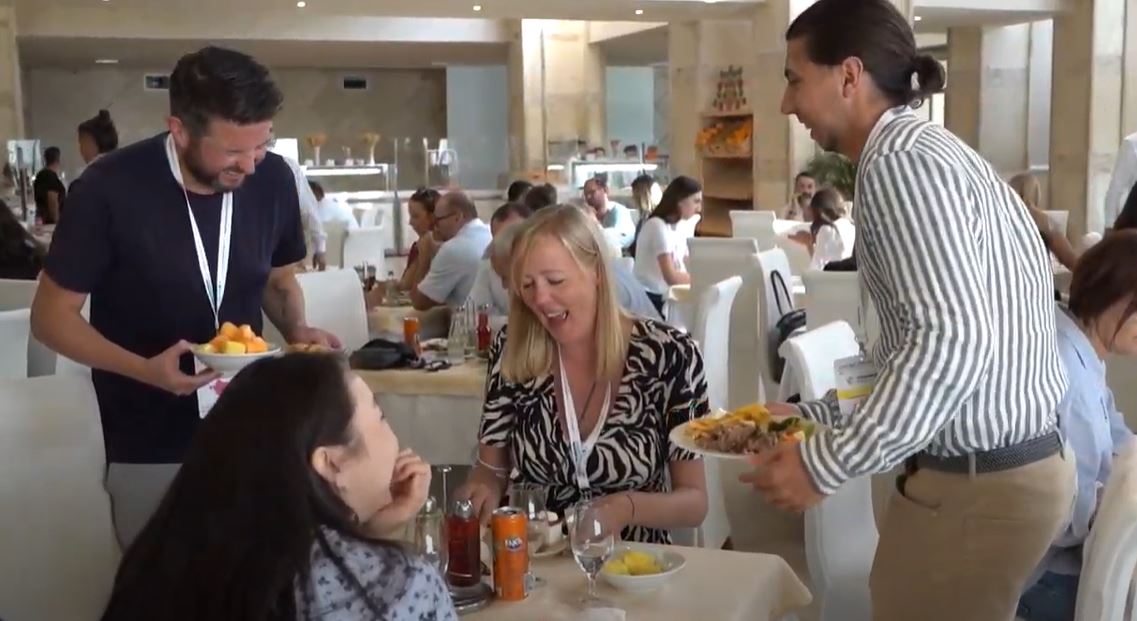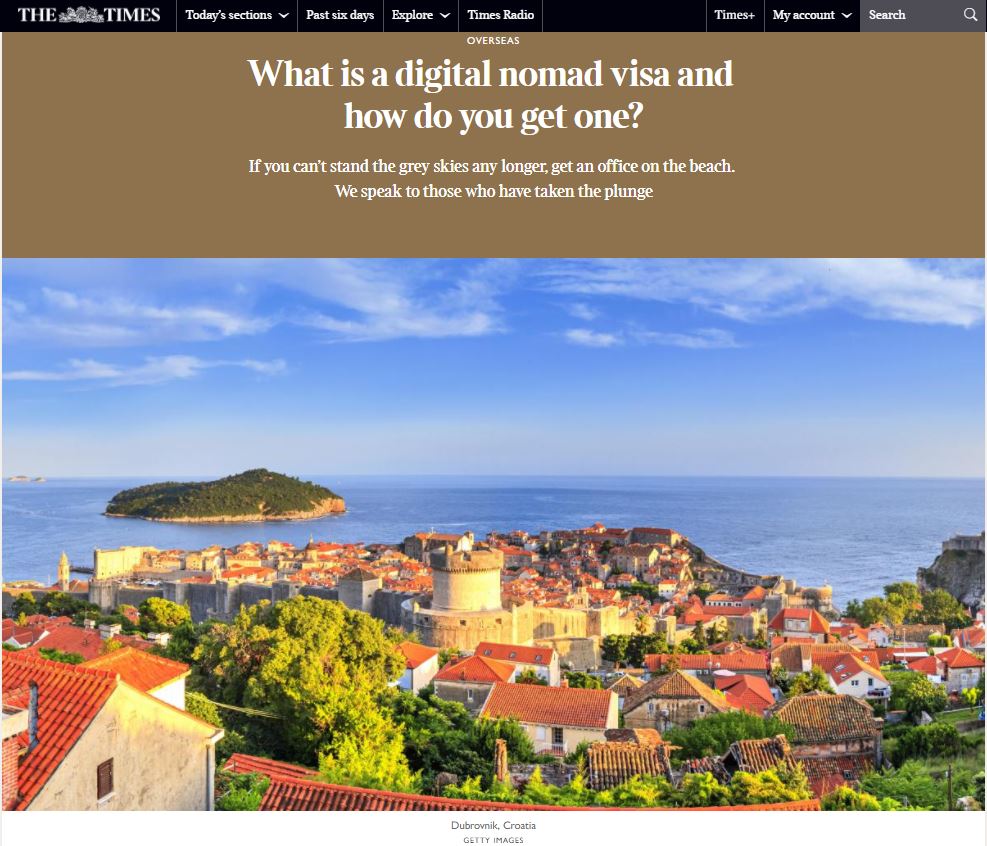Croatian PM Arrives in Montenegro for CEI Summit
ZAGREB, 3 Dec 2021 - Croatian Prime Minister Andrej Plenković arrived in Montenegro on Friday for a one-day visit during which he will attend a Central European Initiative (CEI) summit and meet with representatives of the Croatian community.
The CEI was launched in Budapest in 1989, following the fall of the Berlin Wall, with the aim of assisting central and eastern European countries in joining the European Union.
The initial four members were Austria, Hungary, Italy and Yugoslavia. Austria has in the meantime withdrawn from this organisation, which now has 17 members. Apart from the countries of the former Yugoslavia, the members are: Albania, Belarus, Bulgaria, the Czech Republic, Moldova, Poland, Romania, Slovakia and Ukraine.
Nine CEI countries are now members of the European Union.
Today's meeting in the coastal town of Budva will mark the end of Montenegro's chairmanship of the CEI. Croatia held the chairmanship in 2018 and handed it over to Italy in 2019, when the organisation marked its 30th anniversary in Rome.
The Montenegrin government has announced the attendance of the prime ministers of Bulgaria, Croatia, Serbia and Slovenia. The Croatian delegation includes Interior Minister Davor Božinović and the Secretary of the Central State Office for Croats Abroad, Zvonko Milas.
The summit is expected to adopt a joint statement on further cooperation, with emphasis on development and European integration, and a road map for health and well-being in the Western Balkans until 2025.
The countries in the region are among the worst hit by the coronavirus pandemic in the world. According to the worldometers.info website, which gathers official information on COVID-19, the country with the highest death toll in relation to its population size is Peru, which is followed by Bulgaria, Bosnia and Herzegovina, Montenegro and North Macedonia. Romania ranks ninth and Croatia 13th. The World Health Organisation's Director for Europe, Hans Kluge, will also attend today's summit.
Meeting with the Croatian community
After the CEI summit, the Croatian delegation is scheduled to meet with Montenegrin Prime Minister Zdravko Kirvokapić and visit the Croatian Consulate-General in Kotor, where Prime Minister Plenković will meet with Bishop Ivan Štironja and visit the 12th century Cathedral of St. Tryphon.
After that, the Croatian delegation is due to meet with representatives of the Croatian community in the nearby small town of Donja Lastva.
Local Croats have been complaining about the unresolved legal status of the Croatian Hall in Donja Lastva, the centre of activity of the Croatian National Council in the area.
The 2011 census shows that 6,021 ethnic Croats live in Montenegro, while church records put their number at about 10,000. They are recognised as an ethnic minority, and under the Montenegrin constitution the Croatian language is in official use, according to the Central State Office for Croats Abroad.c
Croatian Digital Nomad Energy Crosses Border at Budva CBCC 2021
October 5, 2021 - An important milestone in developing the regional digital nomad eco-system, as a strong Croatian contingent took part in Day 1 of the Budva Cross Border Coworking Conference (CBCC 2021) in Montenegro.
"The Croatian digital nomad permit is a great thing," said Zagreb Digital Nomad Ambassador for September, Dean Kuchel, "but the next thing I want to see is a digital nomad passport for the region. I want to be able to travel around the Balkans with my digital nomad passort."
That passport may not be here just yet, but Kuchel grabbed his usual one and headed to the airport after an action-packed month in Zagreb. Destination Montenegro and the inaugural CBCC 2021, which kicked off in glorious sunshine in Budva today. He was one of a sizable contingent from Croatia making the journey to Montenegro to share his expertise at the conference.
CBCC 2021, which is part of the EU-funded 2CODE project, an extension of the original CODE project, with 5 partners in 4 cities (Tuzla, Mostar, Budva and Zadar) and 3 countries, was introduced as follows on the official webite:
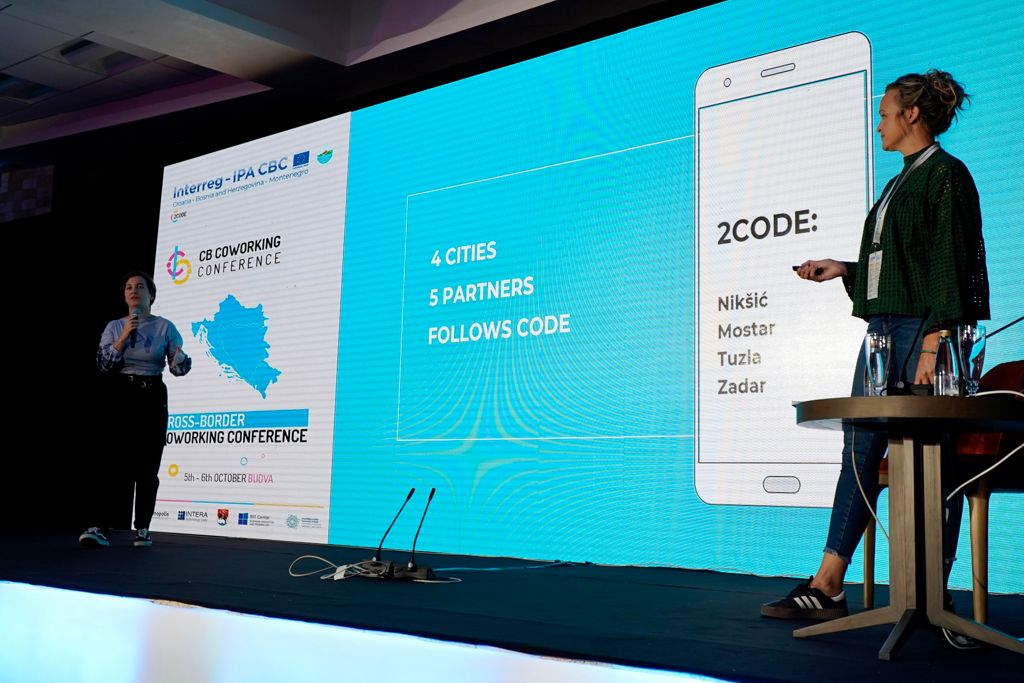
From Monday, 4th October, until Wednesday, 6th October 2021, regional and global experts will gather on the Montenegrin coast, and in a series of lectures and panel discussions will deal with current topics and with their experience contribute to a better understanding of this popular trend. Participants in the conference will discuss the concept and perspectives of digital nomads, the potential of the Western Balkans, the experience of digital nomads who have stayed in the region, as well as the packages the coworking spaces that make up the Code Hub network in Mostar, Nikšić, Tuzla, and Zadar will provide to this target group in the coming period. The two-day conference will also discuss the regional coworking scene, the impact of the global pandemic on the sector, the challenges faced by coworking managers over the past 18 months, but also the benefits of distance working, and the prospects for developing new coworking communities.
While I could not make the event personally due to work commitments, it was encouraging to see so many stakeholders and early movers from the Croatian digital nomad scene contributing to what sounded like a very absorbing day. Having been involved in three of the more prominent DN events in the last 12 months - the first-ever DN conference in Croatia (Dubrovnik for Digital Nomads), the Dubrovnik Digital Nomads-in-Residence program, and Zagreb Digital Nomad Week & Zagreb Digital Nomad Ambassador program.
No less than four of those Dubrovnik DNs in residence were there - they came for a month in April for the Dubrovnik programme, but is seems they can't keep away - or telling the wider DN community about how great Croatia is.
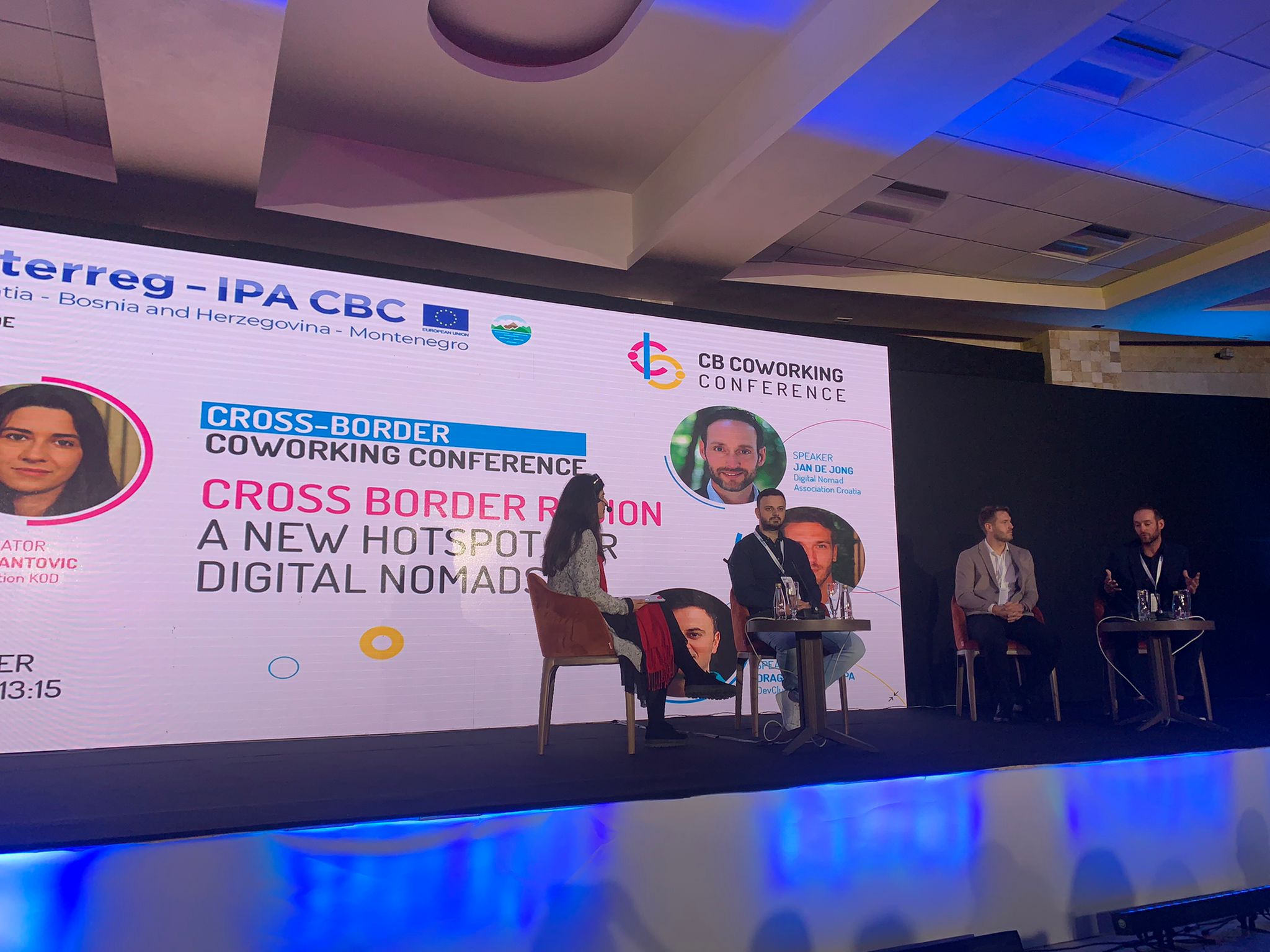
Jan de Jong, the godfather of the Croatian digital nomad permit and co-founder of the Croatian Digital Nomad Association, was also present. Viewed as an inspirational leader in a DN region growing in strength, de Jong talked of the great interest in Croatia, as well the importance of collaboration within the region. De Jong is actively helping digital nomad initiatives - including visas - in neighbouring countries.
Tanja Polegubic of Saltwater Nomads and architect of the Zagreb and Dubrovnik events (as well as also a co-founder of Digital Nomad Association Croatia, opened her presentation with this article from The Times a month ago. A photo of Dubrovnik chosen to lead on an article on digital nomad visas. This shows that this region is in the spotlight, with Dubrovnik only a short distance from all the other hubs. This creates an opportunity to make a 'nomad trail.'
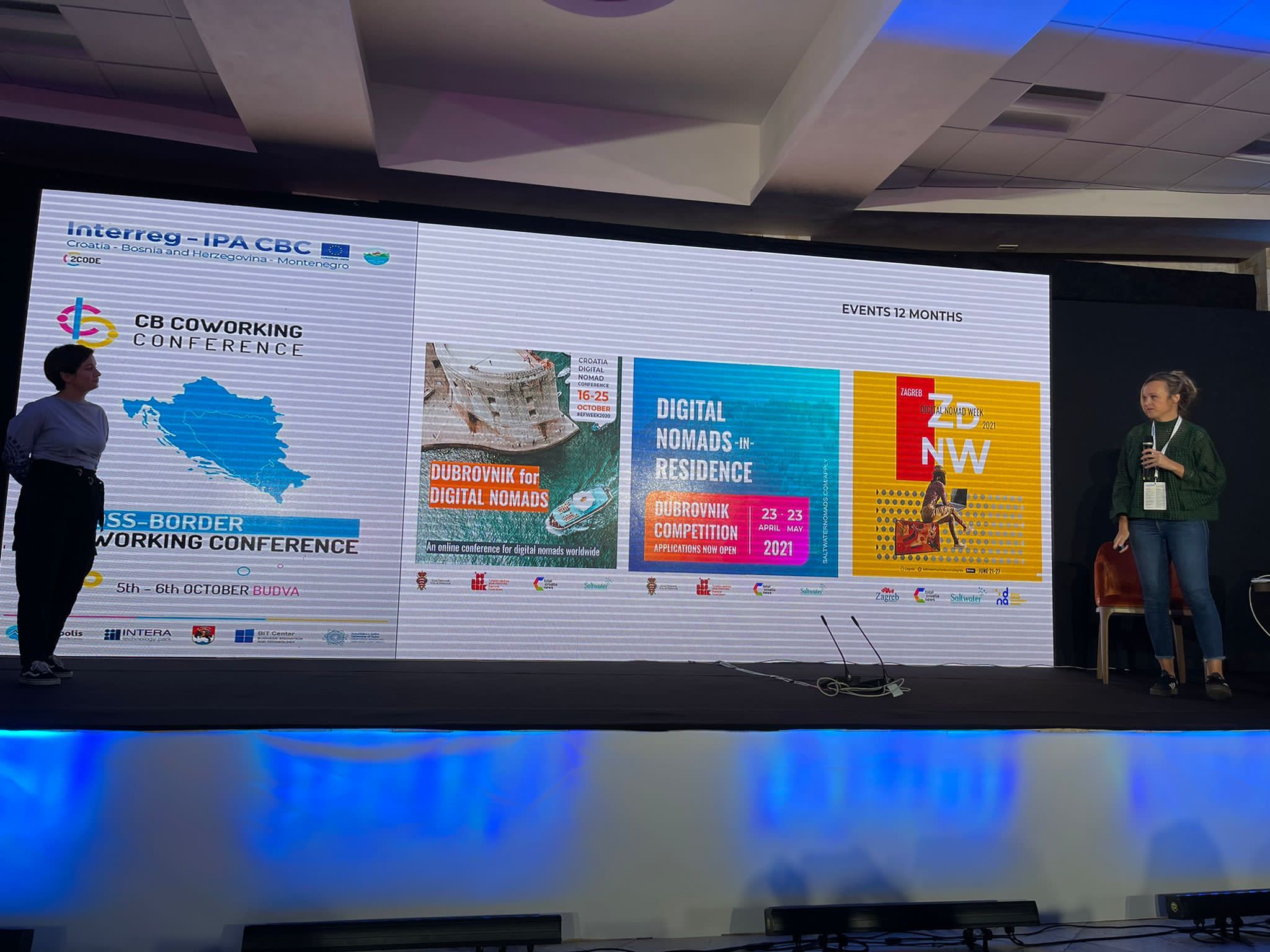
Polegubic presented Zadar and thee coastal regions in general, on the issues and potential solutions, stressing the need to amplify. As the Croatian city taking part in 2CODE, Zadar has made some great progress and is leading the way with many initiatives. It was one of the early movers in the region, opening COIN in 2015. It has since gone on to deliver this know-how to these other hubs. All the coworking spaces are public. Plus there is more to come, including a fab lab.
It has hosted smart city conferences, hackathons and bootcamps. The hotel sector moving into this, with Falkensteiner part of Digital Nomad Valley Zadar, the first so-called digtal nomad village in Croatia.
Recently, Croatia's first unicorn, infobip, moved its acquired SHIFT conference to Zadar. It is a rising star.
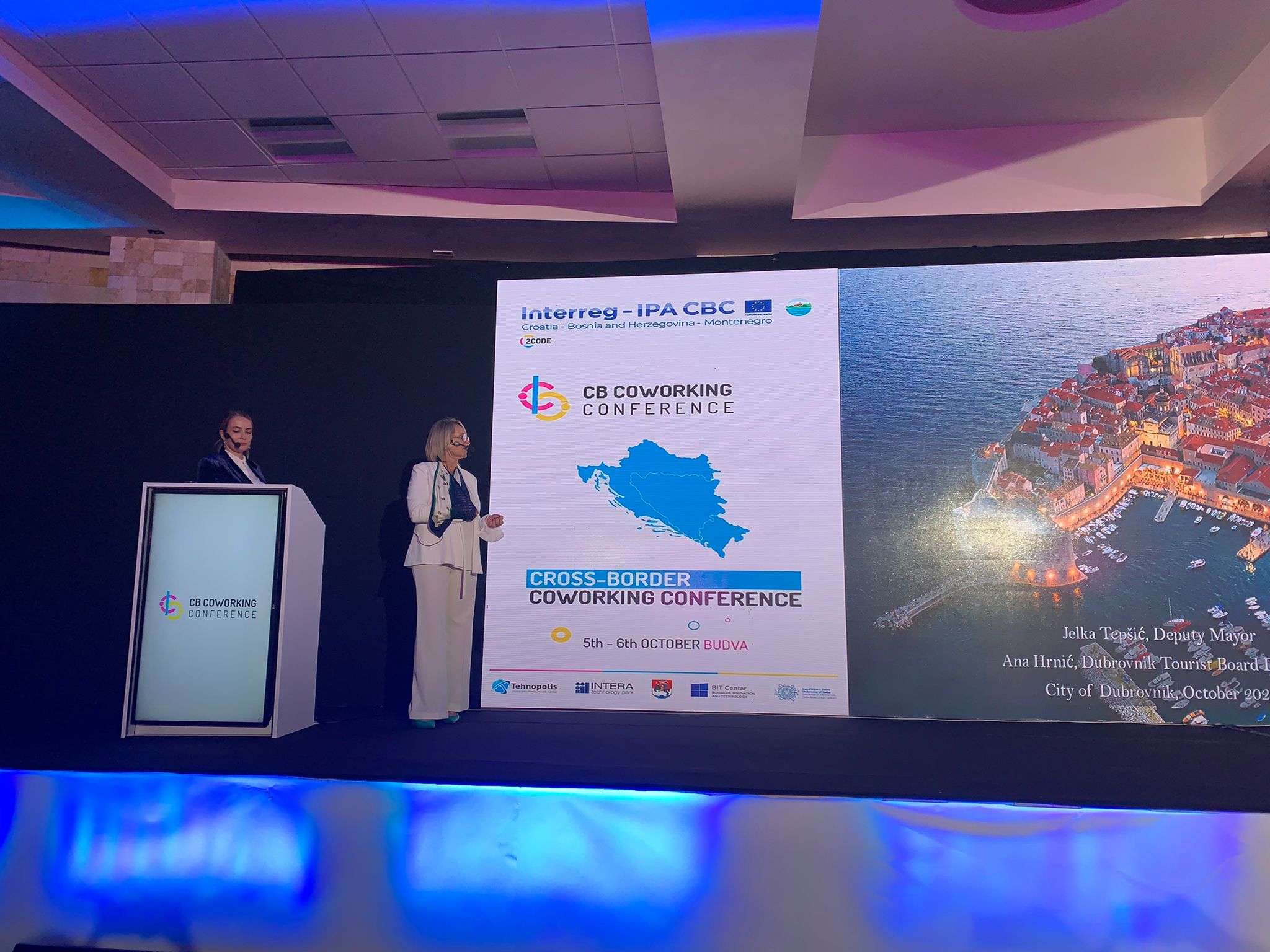
It has been fantastic to see how enthusiastically the city and tourist board of Dubrovnik have grasped and embraced the digital nomad opportunity, and how willing they were to contribute their knowledge and experiences to the region after the two projects with Saltwater Nomads and TCN. Deputy Mayor Jelka Tepsic and Dubrovnik Tourist Board director Ana Hrnic presented their journey so far, including thee roadmap and implementation phase, and a best practice example.
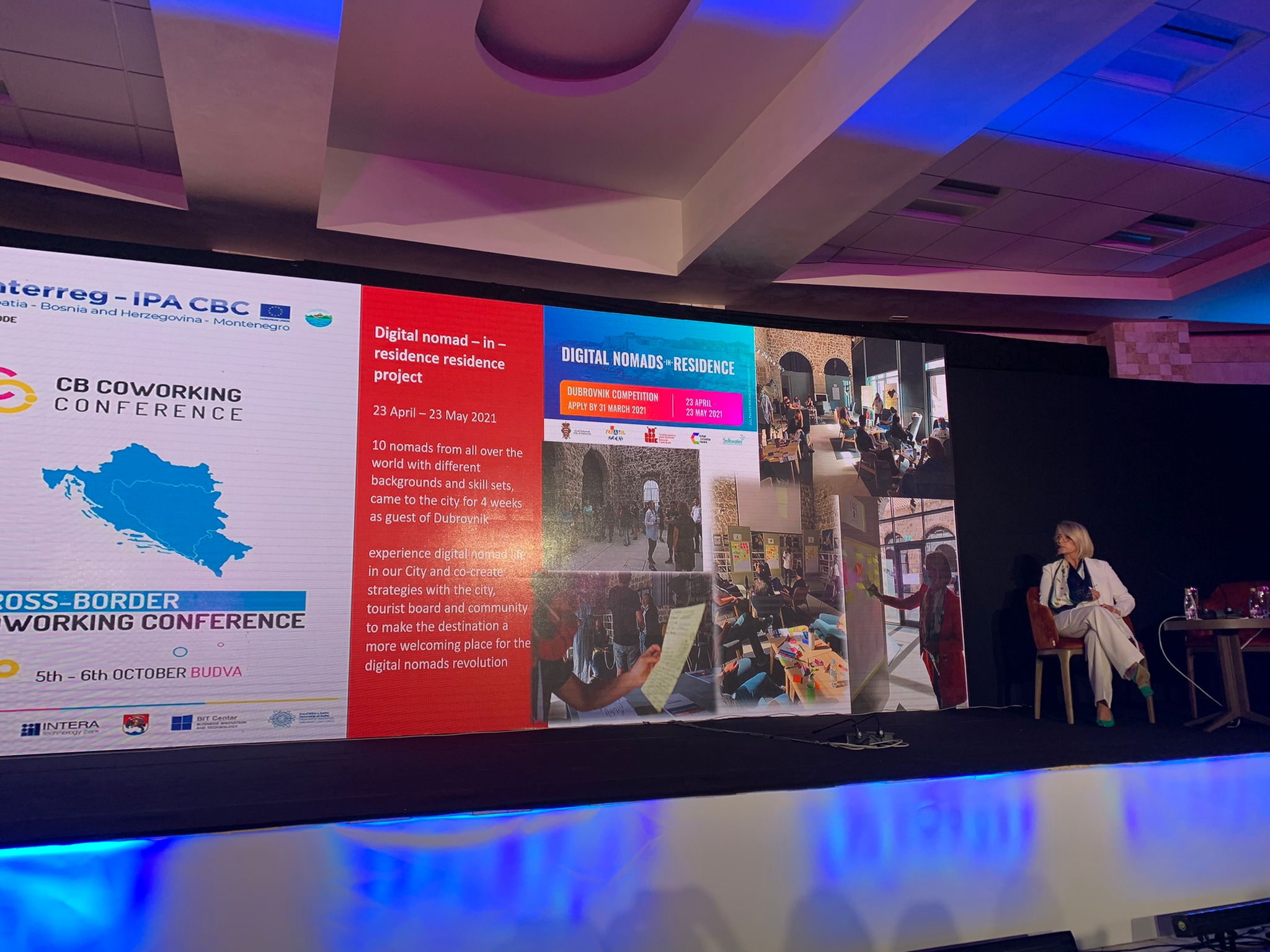
It was very encouraging to learn that some of the quick win recommendations have already been implemented, including three co-working spaces in different parts of the city - Lazareti (Center), Red History Museum (Gruz) and Sunset Beach (Lapad).
No regional digital nomad event would be complete, it seems, without the presence of Zagreb-based Steve Tsentserenky. Mr. T. was the seventh recipient of the Croatian digital nomad permit, and has become one of its most effective ambassadors. His article about the digital nomad lifestyle in Split on CNBC News was the top story of the day, and the accompanying video above has racked up over 275,000 views.
Not all the heroes making big contributions in the Croatian digital nomad story were in front of the camera. A big thank you also to Nick Hathaway, whose heroics at Zagreb Digital Nomad Week delivered live streaming in 7 locations all over the city in 7 days, despite several logistical challenges, was immense. Nick has already uploaded a vlog on Day 1, which you can see above.
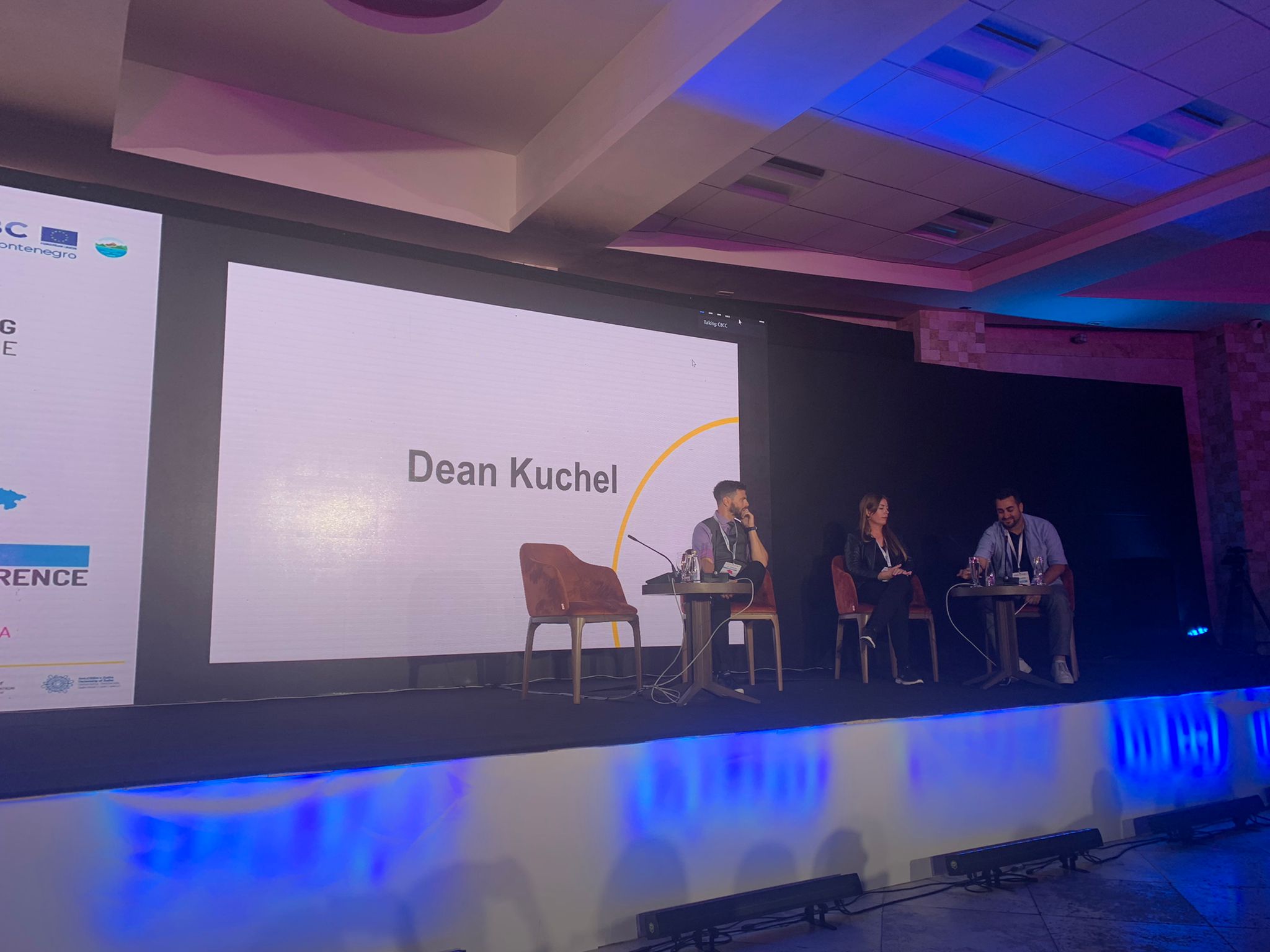
There is plenty in store on Day 2 - and you can see the full programme here.
For more news and features on digital nomads in Croatia, follow the dedicated TCN section.
Strong Croatian Lineup at Budva Cross Border Coworking Conference in October
September 11, 2021 - The digital nomad buzz is buzzing around the Balkans, and the focus will be on Budva next month with a strong Croatian and international lineup at the Budva Cross Border Coworking Conference starting on October 4.
It is not just Croatia which is banging the digital nomad drum in the region. Belgrade and Tirana area also proving very popular destinations in this emerging tourism opportunity, and there are initiatives underway to introduce a digtial nomad visa in both Montenegro and Bosnia and Hercegovina. A stronger region, with good cross-border cooperation, will only enhance the attractiveness of each individual country's offer.
So it is great to see initiatives of colloboration rather than competition taking place, including the Budva Cross Border Coworking Conference in the picturesque Montenegrin resort of Budva from October 4-6. The two-day conference has a great lineup of expert speakers from the regon and beyond, and is introduced as follows on the official website:
From Monday, 4th October, until Wednesday, 6th October 2021, regional and global experts will gather on the Montenegrin coast, and in a series of lectures and panel discussions will deal with current topics and with their experience contribute to a better understanding of this popular trend. Participants in the conference will discuss the concept and perspectives of digital nomads, the potential of the Western Balkans, the experience of digital nomads who have stayed in the region, as well as the packages the coworking spaces that make up the Code Hub network in Mostar, Nikšić, Tuzla, and Zadar will provide to this target group in the coming period. The two-day conference will also discuss the regional coworking scene, the impact of the global pandemic on the sector, the challenges faced by coworking managers over the past 18 months, but also the benefits of distance working, and the prospects for developing new coworking communities.
Several of the driving forces of the Croatian digital nomad scene will be presenting and networking at the conference, sharing their knowledge and encouraging others to take the next steps forward. They include Jan de Jong, the Split-based Dutch entrepreneur, whose open letter on LinkedIn to Croatian Prime Minister Andrej Plenkovic set the ball rolling for the introduction of the Croatian digital nomad permit from January 1 this year. De Jong has been supporting local initiatives in neighbouring countries, including Montenegro,
Tanja Polegubic, CEO of Saltwater Nomads, and the architect of three major events in the nascent Croatian DN scene, will also be speaking. Polegubic was behind the first-ever digital nomad conference in Croatia, Dubrovnik for Digital Nomads. This was followed by two award-winning events, the Dubrovnik Digital Nomads-in-Residence Program, and Zagreb Digital Nomad Week & Zagreb Digital Nomad Ambassador Project.
One of the co-organisers and sponsors of the two Dubrovnik events was the Dubrovnik Tourist Board, and Ana Hrnic, Dubrovnik Tourist Board director, will be presenting a best practice example from the region on the city's approach to the digital nomad market.
An increasingly popular name on the DN conference scene is American Steve Tsentserensky, the 7th successful applicant for the DN permit. Tsentserensky is also doing a great job spreading the message of the wonderful and affordable Croatian lifestyle, including a viral article on CNBC News about the cost of living as a DN in Croatia. The accompanying video above has already racked in over 230,000 views.
Tomislav Capan is a technical consultant, AWS cloud architect, and software engineer, with over 15 years experience, as well as a community events organiser, occasional speaker, and remote work advocate.
There are also a number of excellent speakers from other countries, as well a lively programme. To learn more about both, visit the official website.
The conference is organized within project 2CODE, co-financed by ERDF and IPA II funds of the European Union. Register for free here.


